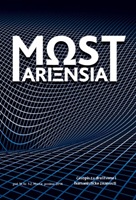THE STATE-LEGAL PERSONALITY OF THE REPUBLIC OF SERBIAN KRAJINA
THE STATE-LEGAL PERSONALITY OF THE REPUBLIC OF SERBIAN KRAJINA
Author(s): Miljenko Brekalo, Stjepan AdanićSubject(s): History of Law, Political history, Social history, Transformation Period (1990 - 2010), Sociology of Law
Published by: Sveučilište u Mostaru i Institut društvenih znanosti Ivo Pilar, Zagreb
Keywords: state; parastate; nation; territory; government; a subject of the international law;
Summary/Abstract: From its foundation until its end, the Republic of Serbian Krajina (the RSK) had been a parastate, remaining the parastate, having failed to meet any criteria of a normally functioning state, as prescribed by Montevideo Convention on the Rights and Duties of States, known as Montevideo Convention. Therefore, the RSK has never become the subject of international law, unlike the Republic of Srpska, upon signing The General Framework for Peace in Bosnia and Herzegovina or the Dayton Peace Agreement. The Republic of Serbian Krajina was a federative parastate, defined by the territorial discontinuity and it consisted of three federative units: the Serbian Region of Slavonia, Baranja and Western Sirmium Region, the Serbian Region of Western Slavonia and the Serbian Autonomous Region of Krajina. In the formal and legal sense, the Republic of Serbian Krajina was established after it got proclaimed on 19th December 1991. However, it fell apart, de facto, on 5th August 1995, due to the fact that its capital city of Knin, was liberated by the joined police and Croatian military forces, compelling the RSK representatives to sign the capitulation, de iure, on 8th August 1995.
Journal: Mostariensia - časopis za društvene i humanističke znanosti
- Issue Year: 26/2022
- Issue No: 1
- Page Range: 45-57
- Page Count: 13
- Language: English

